Introducing our Implementing Partners
In amongst the hustle and bustle of daily life, it is easy to overlook many of the smaller things we have to be grateful for in our lives. As we take a moment to pause and reflect, it is our friends in the Positive Impact space that come to mind for the crucial work they perform on a daily basis.
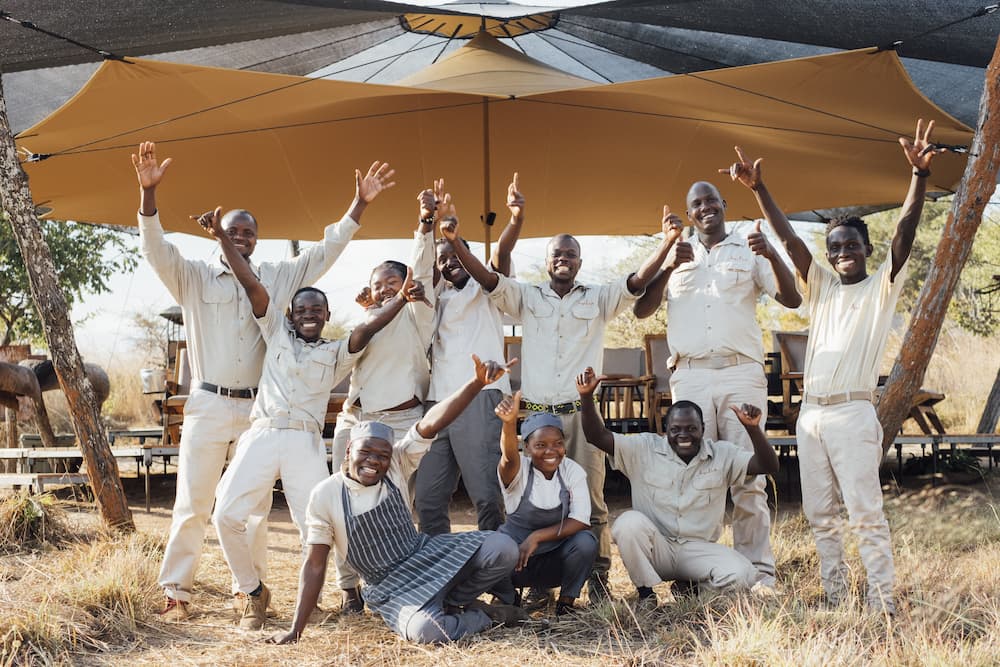
Happy smiles from the friendly family at Usangu Expedition Camp.
Achieving Positive Impact at scale requires the support of many partners in order to extend the reach and benefit as widely as possible. The old African proverb, “If you want to go fast, go alone. If you want to go far, go together” rings true in this space, where collaboration and partnership will allow us to achieve far more than what we could if we were to do it alone. By supporting our implementing partners, together we are able to contribute towards the protection of crucial wilderness areas, bringing benefit to both people and nature alike on a far wider scale. Through this work, our partners have become our family, and we are grateful to be able to support them and the work they perform on a daily basis.
The Maa Trust
The Maa Trust operates a number of programs in the Greater Mara Area, focusing on community development and increasing benefits to Maasai families to encourage their appreciation for the protection of wildlife and wilderness areas. Maa Beadwork and Maa Honey are two projects aimed at providing community members with skills and additional revenue streams. The honey is a regular feature on our breakfast tables, and the beadwork can be purchased in most of our camp shops.
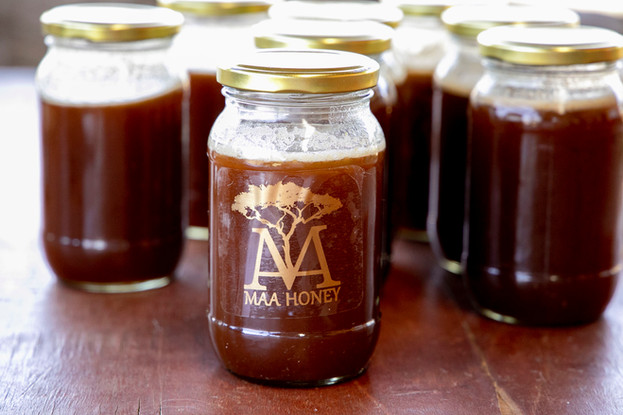
Fresh honey, produced and bottled by the ladies of the Maa Trust. ©Maa Trust
Rhino Ark
Further north, Rhino Ark operates an ongoing conservation education program relating to the South West Mau Forest ecosystem. As the largest drainage basin in Kenya, this forest is crucial to the long-term availability of water in Kenya but is under threat from logging, the charcoal trade and human settlement.
K9 Unit
In the Manyara and Tarangire region, the Honeyguide Foundation operates a K9 Unit. These “dog detectives” have gained a formidable reputation and regularly contribute to anti-poaching initiatives, especially in locating wildlife snares. As a result of this, the poaching of elephants has been dramatically reduced.
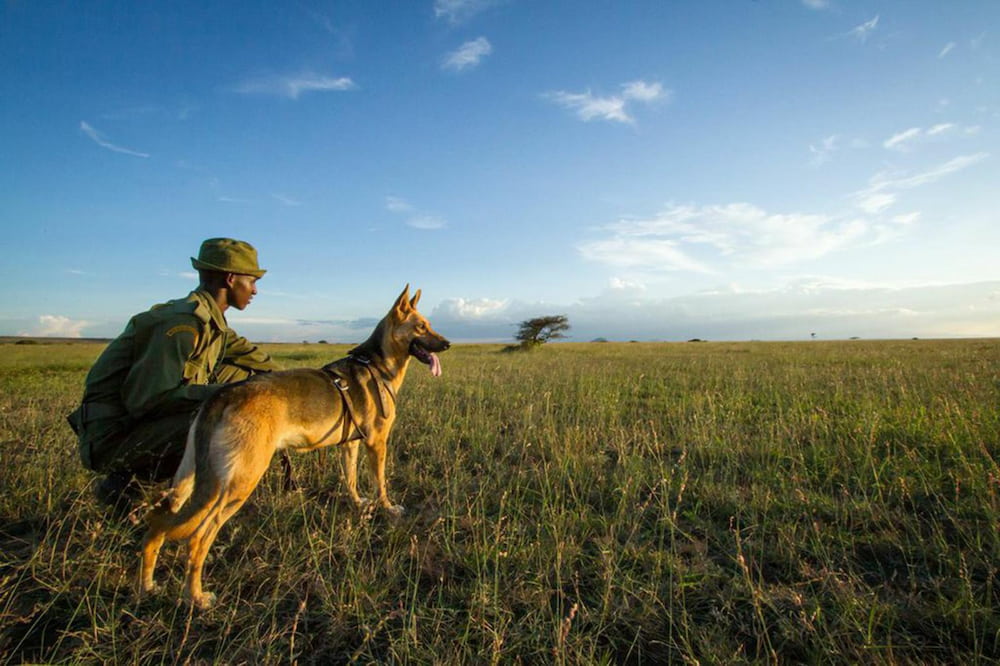
The K9 Unit in action in the Tarangire region. ©Honeyguide Foundation
The Tarangire Lion Project
The Tarangire Lion Project also operates in the region, using tracking collars to monitor the movements of various prides with the aim of mitigating human-wildlife conflict and ensuring the safety of these apex predators.
The Serengeti Cheetah Project
To the north, on the short grass plains of Ndutu, the Serengeti Cheetah Project conducts ongoing research and data collection as they aim to identify and monitor cheetah in the region. Individuals are identified through their spot pattern using photographs or a digital matching program, while the analysis of scat provides insight into the genetic diversity and parentage.
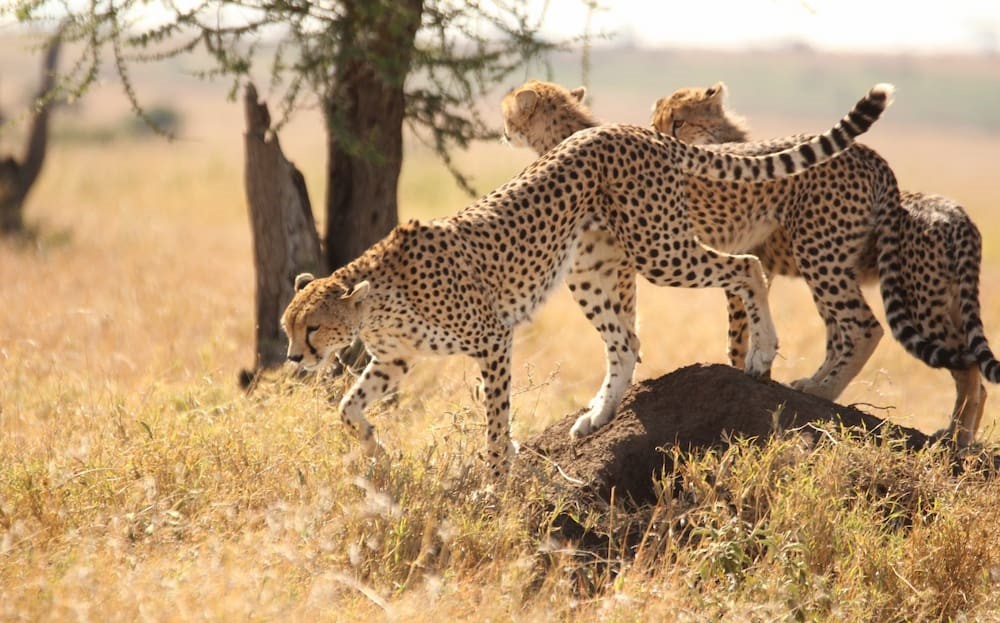
A family of cheetah under observation on the Ndutu Plains ©Serengeti Cheetah Project
The Eastern Serengeti Livestock Encroachment Unit
To the east, the Frankfurt Zoological Society manages the Eastern Serengeti Livestock Encroachment Unit, a team dedicated to ensuring farmers do not bring their livestock into the Serengeti National Park to graze. Apart from being illegal, competing for grazing ground deprives wildlife of access to the area and creates a danger of human-wildlife conflict.
The Southern Tanzania Elephant Program
In the south, the Southern Tanzania Elephant Program aims to secure a peaceful coexistence between people and elephants through careful land management and the crucial support of communities living in close proximity to these graceful giants.
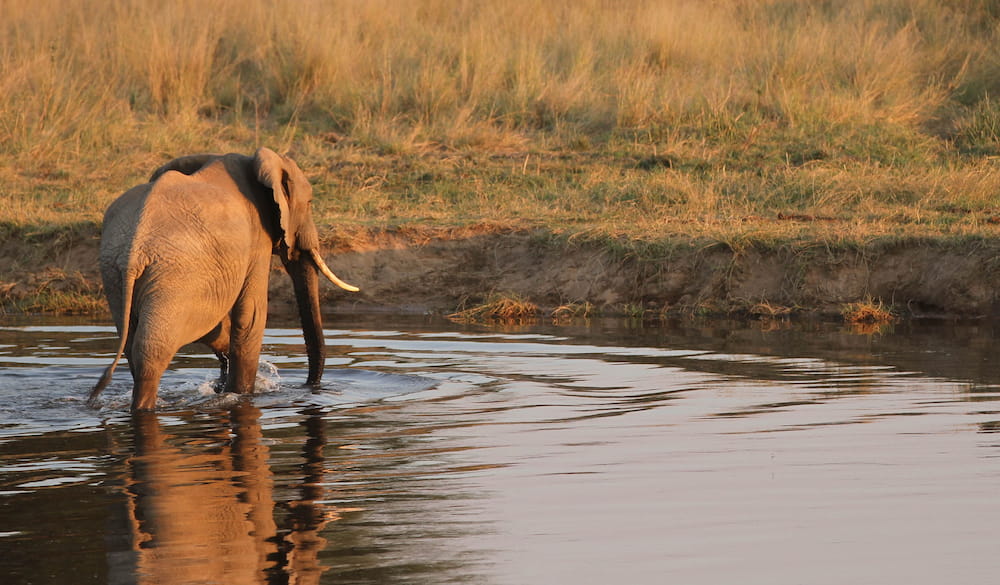
Elephant migratory corridors are being encroached upon by agriculture and human settlement, resulting in human-wildlife conflict.
The Mara Elephant Project
Working across the Greater Mara Area, the Mara Elephant Project has a similar goal of promoting human-elephant coexistence, working together with local communities to provide education and establish long term solutions to limiting crop losses and creating additional sustainable revenue sources.
Each of these projects is achieving something special, on a scale that we could not hope to reach on our own. We are grateful to be associated with them, proud of the work we will continue to do in the years to come, and honoured to consider them our friends.
More Positive Impact Articles

Electric Vehicles: The Future Of East African Safari Travel?
12 January 2020October 2019 saw the arrival of our first electric, solar-powered safari vehi...

Its Our 15th Birthday: Celebrating 15 Years of Making a Genuine Difference
08 November 2019This year, we're celebrating our 15th birthday and commemorating 15 years of...

World Tourism Awards 2019: Asilia Recognised For Our Positive Impact
01 November 2019The World Tourism Awards acknowledge, reward, and celebrate excellence across...

Supersized Traditional Maasai Necklace
21 October 2019In 2009, we became a founding member of the Mara Naboisho Conservancy and sin...





